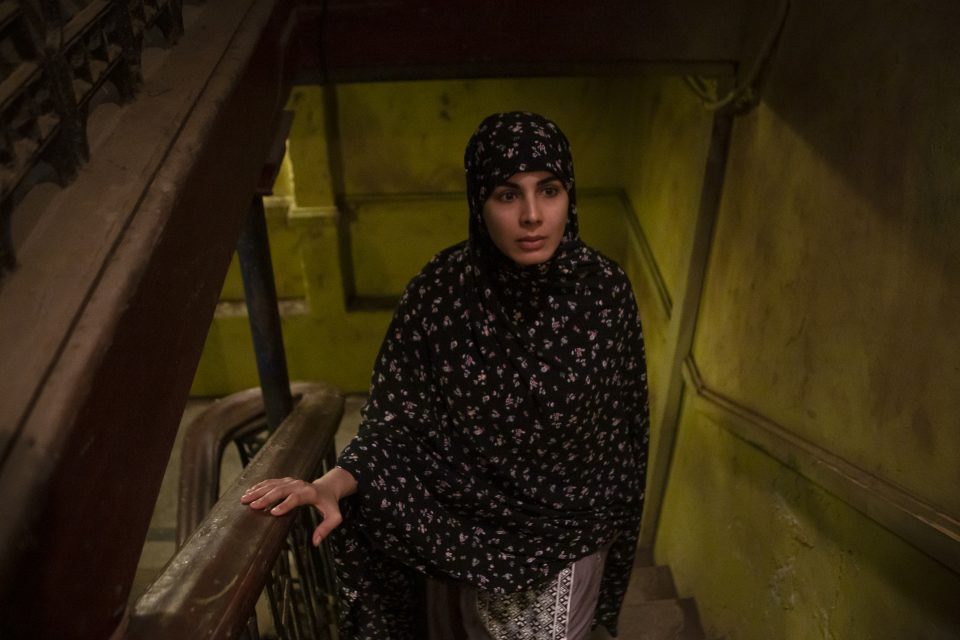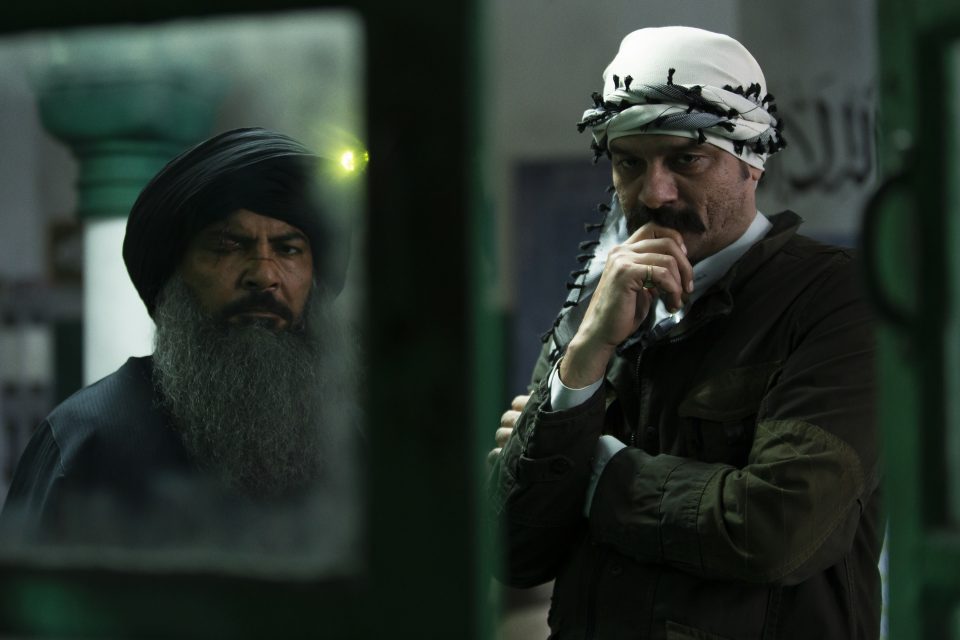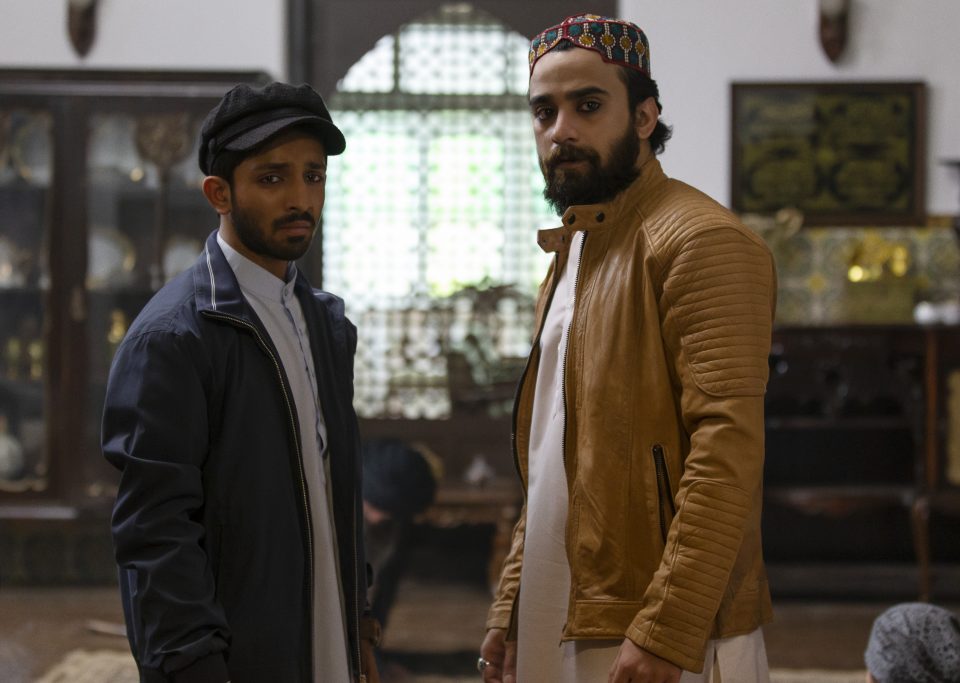‘Bard of Blood’ Review: The Shallow Translation of a Complex Endeavor
What the series achieves with its initial worldbuilding, it loses in its character arcs which are all but muffled
★ ★ ½
(This review contains spoilers)
Netflix recently dropped the Indian espionage thriller Bard of Blood, a series which follows ex-IIW (Indian Intelligence Wing) agent Kabir Anand (Emraan Hashmi) who is drawn back to Balochistan when four IIW agents are captured by the Taliban. The seven episode series is based on the 2015 book by author Bilal Siddiqi and was created for the platform by Siddiqi and producer Gaurav Verma with Ribhu Dasgupta serving as the director. The series navigates the agencies’ (IIW and Pakistan’s Inter Services Agency – ISA) interests in the Quetta and Kech districts as they dabble with old (Balochistan Azad Force — BAF) and new (Taliban) groups that fight to assert their dominance in a conflict-ridden Balochistan.

Emraan Hashmi, Vineet Kumar Singh and Dhulipala in ‘Bard of Blood.’ Photo: Anu Pattnaik/Netflix
What Bard of Blood achieves in its initial worldbuilding, it loses as the series progresses and dissolves its character arcs — quite the opposite of what a well-written show would do. We’re introduced to a festering gender bias faced by IIW Analyst Isha Khanna (Sobhita Dhulipala), an opium addiction nursed by undercover IIW agent Veer Singh (Vineet Kumar Singh), differing takes on a shared ideology between Taliban leader Mullah Khalid (Danish Husain) and his son/second-in-command Aftab Khalid (Asheish Nijhawan), and more. But as the story progresses, their arcs merge prematurely with the script to not affect the plot or realize the social, cultural, political and religious nuances of the show. The series then becomes a practice in stereotype and frustration.

Kirti Kulhari in ‘Bard of Blood.’ Photo: Anu Pattnaik/Netflix
A single scene (where IIW agent Rehmat Khatib — played by Ajay Mahendru — is beheaded) serves to explain the difference between Islam and Jihad, without delving into the mindset and experiences that shape both beliefs, thereby presenting these characters as block caricatures in an existing newsreel that is already populated with them. A love story is concocted between Anand and BAF leader Nusrat Marri’s (Abhishekh Khan) sister Jannat Marri (Kirti Kulhari) that serves less to aid viewers’ understanding of the on-going conflict in Balochistan and more to guarantee Anand the manpower he needs to free the captured Indian agents. To make things worse, Jannat’s arc is used to advance that of Anand’s. The captured agents’ mental ordeal is also never delved into and all viewers are given is a peak of their outbursts as they try to come up with a plan of escape or suicide. After some time, their on-screen dialogue just seems like a tacked on addition to justify the tangents and paths that Anand takes before he finally rescues them.

Danish Husain and Jaideep Ahlawat in ‘Bard of Blood.’ Photo: Anu Pattnaik/Netflix
Bard of Blood doesn’t explore important points of view — given the context and setting of the show — and viewers never get to see how Khanna, Singh, the agents and other characters navigate their unique positions as they cope with the dangers ahead. Their psyche, motivations and beliefs are uncharted, and this was especially a loss when the cunning, master-planner ISA agent Tanveer Shehzad (Jaideep Ahlawat) bit the dust before we were given the needed answers. The villain’s potential was only explored to provoke Anand and advance the latter’s arc despite presenting as someone who is miles ahead of anyone else in the game. His character also occupied a position of leverage in the plot, where viewers who are not familiar with India and Pakistan’s politics, could begin to understand the history and nuances of the decades long bitterness between the countries. After all, conflict is not a singular experience.
Bard of Blood could learn a thing or two from the Israeli television series Fauda. The show which follows a counter-terrorism unit doesn’t present its many characters — on both sides of the Israel-Palestine conflict — as block personas but delves into their stories, their intersections with the conflict and its consequences for the overall storyline. Viewers are not introduced to them to be left in a lurch and intercharacter dynamics exist. This is where Bard of Blood fails; the truth is that we’re touching just the tip of the iceberg with these characters and themes, which don’t evolve but succumb to the script written by Siddiqi and Mayank Tewari.

Abhishekh Khan and Shamaun Ahmed in ‘Bard of Blood.’ Photo: Anu Pattnaik/Netflix
The only character dynamic that is satisfactorily explored apart from that of Anand and Jannat is that of Nusrat and his right-hand-man Qasim Baloch (Shamaun Ahmed) which saw some interesting development as they went from holding opposing leadership styles to seeing eye to eye on BAF’s mandate (I’m glad Baloch didn’t pull the trigger on Nusrat). In a series populated with egotistical power struggles, it would be great to see a dual leadership dynamic evolve between the two — if Bard of Blood is renewed for a second season.
There’s so much to unpack in the series that is laid to untimely restlessness but when you ignore the noise, Bard of Blood can be entertaining. The cinematography is immersive and the actors do well by the material available to them (Kulhari, Singh, Ahlawat and Sahiba Bali — who plays ISA agent Abida — deliver winning performances). The dialogue is at times both funny and revelatory, especially when Singh and Jannat voice what’s on their minds. But that’s about it. The action sequences go from choreographed to choppy with a bit too many blown up vehicles (the characters are really trigger happy sometimes) and the characterization is limited to block personas, even as the script builds up to a development, leaving viewers both disappointed and in a lurch.
The series is ultimately not so much about espionage as it is about the personal story of Kabir Anand. In the words of Shehzad, the one with the potential of being villain of the year, “Ye janaab [bas] jasoos-jasoos khelna chahte hain (This man just wants to play agent.)”




